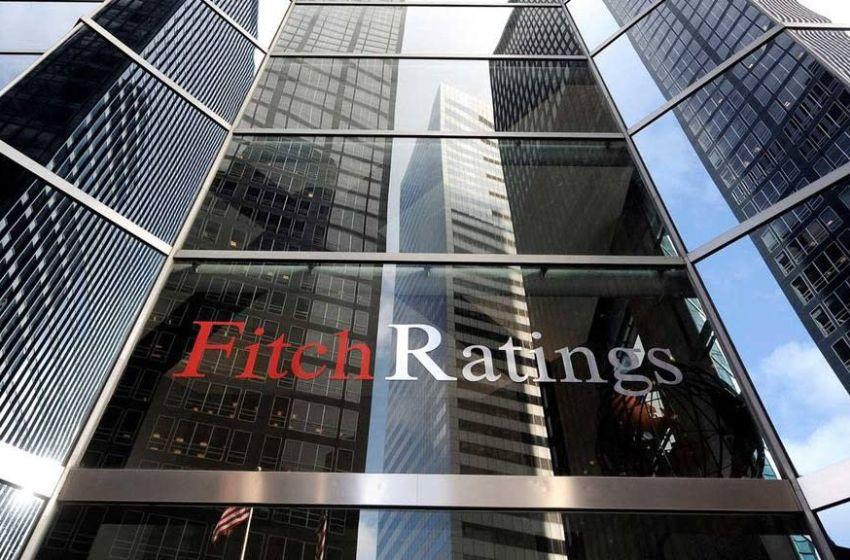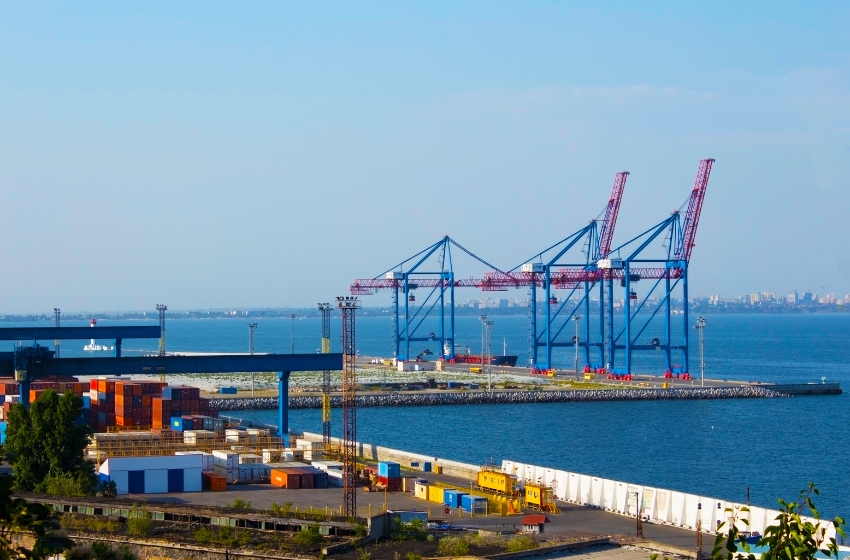London, 28 Oct 2022 - Fitch Ratings has affirmed the Ukrainian cities of Dnipro, Kharkov, Kyiv, Lviv, and Odessa's Long-Term Foreign-Currency Issuer Default Ratings (IDR) at 'CC' and Long-Term Local-Currency IDRs at 'CCC-'. Ratings at this level typically do not carry Outlooks due to their high volatility. A full list of rating actions is at the end of this rating action commentary.
ISSUER PROFILE
- Dnipro is one of the largest cities in Ukraine with a population of about one million. The city's economy is industrialised and is dominated by metallurgy and heavy manufacturing sectors.
- Kharkov is the capital of Kharkov region and has a population of about 1.5 million. It has a diversified urban economy supported by a large number of companies in various sectors.
- Kyiv is the capital of Ukraine and is the largest and wealthiest city in the country. Its population is about three million and gross city product accounts for about 23% of national GDP.
- Lviv is the capital of the Lviv Region and has a population of about 700,000. The city's economy is diversified across manufacturing and services.
- Odessa city, a capital of the Odessa region, has a population of one million. The city is a key port on the Black Sea.
KEY RATING DRIVERS
The Risk Profiles remain 'Vulnerable' and the cities have the six Key Risk Factors assessed at 'Weaker'. The 'Weaker' assessment of the risk factors is the lowest possible under Fitch's International Local and Regional Governments (LRG) Rating Criteria and reflects the interference and strong interdependence of the local governments (LG) on the Ukrainian sovereign.
The assessment reflects Fitch's view of a very high risk that the issuers' ability to cover debt service with the operating balance may weaken unexpectedly over the scenario horizon notably due to lower revenue and higher expenditure.
We have maintained the LGs' debt sustainability assessments at 'b' to reflect that their overall performance has been negatively affected by the war-related large negative shock to the national economy and the damage to critical infrastructure. The risk of insufficient liquidity to service the LGs' adjusted debt is elevated. In addition, there is uncertainty about the pace of a future economic recovery, capital market access and the cost of debt after the war ends.
Ukraine government and its institutions (central government, tax collection, social transfers, banking system) are still largely intact. However, the damage to critical municipal and social infrastructure - housing, schools and kindergartens, hospitals, roads, municipal building and work establishments - and the displacement of a large number of LGs' citizens to other places in Ukraine or abroad, significantly restrict the LGs' revenues, which cannot be made up by transfers from the state budget.
We assume spending pressure will increase strongly with raising inflation, broken supply chains driving prices for goods and services high and large reconstruction efforts. Additionally, government-related entities (GREs) performing municipal services (transportation, heating, solid waste, water and sewage) are largely not self-supporting, and will increasingly rely on subsidies, capital injections and direct debt repayments made by the cities, which can only add to their own difficulties.
In our view, issuers are facing increasing and material refinancing risk for their debt as they are exposed to greater uncertainty around market access, cost of debt and FX exchange rates. This is despite the fact that the National Bank of Ukraine has suggested implementing holidays on loan payments until martial law ends (recently prolonged until 21 November) and that some LGs have approached lenders to waive the debt service. Ukrainian cities' and their GREs' funding comes from capital markets, local commercial banks, and institutional lenders, is of short to medium term and often in FX (US dollars or euros). Fitch focuses on Fitch-adjusted debt, as it reclassifies contingent debt of not self-supporting GREs.
ESG - Political Stability and Rights: The invasion by Russia and ongoing full-scale war has severely compromised the cities' political stability and the security outlook. The war is resulting in the death of cities' inhabitants and extensive property damage, with the aim of changing the cities' government and/or occupying its territory.
ESG - Creditor Rights: The protracted war has weakened the cities' ability and willingness to service and repay debt. The cities' liquidity is deteriorating and the Ukrainian sovereign's willingness to allow the use of foreign-currency reserves for debt service in foreign currency is diminishing, while costs of preserving the urban and communal functions for the cities are on the rise.
DERIVATION SUMMARY
Ukrainian LGs remain institutionally strongly linked to the credit quality of the Ukrainian sovereign (CC/CCC-), which is severely affected by the Russian-Ukrainian war. Fitch based its rating derivation on the agency's rating definition for all Ukrainians LRGs and the 'ccc' SCP reflects Fitch's view that a default is a real possibility and the LGs under consideration would have exposure to significant refinancing needs and high liquidity risk accompanied by weak debt coverage metrics. The 'CC'/'CCC-' IDRs are capped by the sovereign rating.
DEBT RATING DERIVATION
The ratings of senior debt instruments are aligned with the LGs' Long-Term IDRs, including the senior unsecured debt of special financial vehicle (SPV) company PRB Kyiv Finance Plc. This is because we view the SPVs' debt as direct, unconditional senior unsecured obligations of the City of Kyiv, ranking pari passu with all of its other present and future unsecured and unsubordinated obligations.
RATING SENSITIVITIES
Factors that could, individually or collectively, lead to positive rating action/upgrade:
- An upgrade of Ukraine's IDRs would lead to an upgrade of the LGs' IDRs, provided that the cities' Debt Sustainability remains in the 'b' category.
Factors that could, individually or collectively, lead to negative rating action/downgrade:
- Downgrade of Ukraine's sovereign ratings.
- Weakened liquidity that could pressure the LGs' ability to service debt.
BEST/WORST CASE RATING SCENARIO
International scale credit ratings of Sovereigns, Public Finance and Infrastructure issuers have a best-case rating upgrade scenario (defined as the 99th percentile of rating transitions, measured in a positive direction) of three notches over a three-year rating horizon; and a worst-case rating downgrade scenario (defined as the 99th percentile of rating transitions, measured in a negative direction) of three notches over three years. The complete span of best- and worst-case scenario credit ratings for all rating categories ranges from 'AAA' to 'D'. Best- and worst-case scenario credit ratings are based on historical performance. For more information about the methodology used to determine sector-specific best- and worst-case scenario credit ratings, visit https://www.fitchratings.com/site/re/10111579.
LIQUIDITY AND DEBT STRUCTURE
Based on the information provided by the cities they are all current on all financial commitments.
PUBLIC RATINGS WITH CREDIT LINKAGE TO OTHER RATINGS
The cities' and SPV's ratings are linked to the ratings of the sovereign.
ESG CONSIDERATIONS
The ESG Relevance Scores for political stability and rights for all five cities is '5' to reflect the invasion by Russia and ongoing full-scale war, which has severely compromised the cities' political stability and the security outlook. This has a negative impact on the credit profiles and is highly relevant to the ratings. The war is resulting in the death of city inhabitants and extensive property damage, with the aim of changing the city's government and/or occupying its territory.
The ESG Relevance Scores for creditor rights for all five cities is '5' to reflect the weakened ability and willingness of the cities to service and repay debt. This has a negative impact on the credit profiles and is highly relevant to the ratings. The protracted war is resulting in depletion of liquidity and diminishing Ukrainian sovereign's willingness to allow the use of foreign currency reserves for debt service in foreign currency, while costs of preserving the urban and communal functions for the cities are on the rise.
ENDORSEMENT POLICY
Fitch’s international credit ratings produced outside the EU or the UK, as the case may be, are endorsed for use by regulated entities within the EU or the UK, respectively, for regulatory purposes, pursuant to the terms of the EU CRA Regulation or the UK Credit Rating Agencies (Amendment etc.) (EU Exit) Regulations 2019, as the case may be. Fitch’s approach to endorsement in the EU and the UK can be found on Fitch’s Regulatory Affairs page on Fitch’s website. The endorsement status of international credit ratings is provided within the entity summary page for each rated entity and in the transaction detail pages for structured finance transactions on the Fitch website. These disclosures are updated on a daily basis.





















